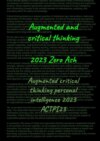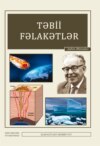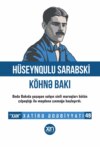Kitabı oku: «Augmented and critical thinking», sayfa 2
Critical thinking and troubleshooting
Troubleshooting and critical thinking are related concepts, but they have distinct differences.
Troubleshooting is a systematic approach to problem-solving, often used in technical and practical contexts. It typically involves identifying and resolving specific issues or malfunctions in a system, process, or device. Here are some key characteristics of troubleshooting.
Troubleshooting focuses on finding solutions to well-defined problems or issues. It usually begins with a clear problem statement or symptom.
Troubleshooting often follows a step-by-step procedure or checklist to diagnose and address the problem. It can be highly structured and relies on known techniques or best practices.
Effective troubleshooting often requires specialized knowledge or expertise in a particular domain or field.
The primary goal of troubleshooting is to restore a system to normal functioning by fixing the identified issue.
The key difference between troubleshooting and critical thinking is that troubleshooting is a specific problem-solving approach, often focused on practical issues, while critical thinking is a more general cognitive skill that involves analyzing, evaluating, and synthesizing information and ideas in a wide range of contexts. Critical thinking can be an important component of effective troubleshooting, as it helps individuals make informed decisions and consider various solutions during the troubleshooting process.
Troubleshooting is a systematic problem-solving process aimed at identifying and resolving issues or malfunctions in various contexts, such as technology, machinery, systems, and everyday situations. It involves a methodical approach of diagnosing the root causes of problems, often through a series of logical steps and tests, in order to find effective solutions. Troubleshooting requires critical thinking, deductive reasoning, and the ability to isolate issues by breaking them down into manageable components. It is a vital skill in resolving technical problems, maintaining efficiency in processes, and ensuring the smooth operation of complex systems, ultimately contributing to the functionality and reliability of various systems and environments.
Critical comment. So much for troubleshooting, there is no need for critical thinking, go through the list and fix problems – a joke. Just as troubleshooting skills are useful in critical thinking, so critical thinking is necessary for troubleshooting.
Critical thinking in consulting
Consulting is a multifaceted field that requires professionals to navigate complex challenges and provide valuable solutions to a diverse range of clients. At the heart of effective consulting lies critical thinking – the ability to analyze, evaluate, and synthesize information to make informed decisions and recommendations. In this research, we will explore the significance of critical thinking in consulting, the key components of critical thinking in this context, and its impact on the success of consulting projects.
Critical thinking is the cornerstone of consulting success. It involves the systematic evaluation of information, ideas, and assumptions to reach well-founded conclusions. In consulting, this skill is indispensable because consultants are often brought in to solve problems, make decisions, and provide expert advice. Effective consultants must think critically to add value to their clients’ organizations.
Consultants are frequently hired to address complex problems. Critical thinking allows them to dissect these issues, identify their root causes, and propose viable solutions. Without this skill, consultants risk offering superficial or ineffective remedies.
Consultants often assist clients in making pivotal decisions that can significantly impact their organizations. Critical thinking enables them to analyze alternatives, evaluate potential risks, and make informed recommendations.
Critical thinking encourages consultants to think outside the box and generate innovative ideas. This creativity can be invaluable in finding unique solutions to longstanding problems.
Consultants must gather and analyze a wealth of data, from financial reports to market trends. Critical thinking helps them discern relevant from irrelevant information, identify patterns, and draw meaningful conclusions.
Critical thinkers can identify the underlying issues that contribute to a problem. They don’t merely address symptoms but delve into the root causes, which is essential for long-term solutions.
Effective consultants consider multiple viewpoints and potential solutions. They recognize that a one-size-fits-all approach seldom works and tailor their recommendations to the unique needs of their clients.
Critical thinking encourages consultants to base their decisions and recommendations on objective evidence rather than personal bias or unverified assumptions. This ensures the credibility and reliability of their advice.
The best consultants are lifelong learners who stay up-to-date with industry trends and best practices. They engage in critical self-reflection to improve their skills and adapt to evolving client needs.
The application of critical thinking in consulting has several tangible benefits.
Critical thinkers can tackle complex problems methodically, resulting in more effective solutions.
Clients trust consultants who base their recommendations on a rigorous analysis of facts and data. This trust is essential for client satisfaction and long-term relationships.
Critical thinking fosters a culture of innovation in consulting firms, leading to the development of creative, high-impact solutions.
Consultants who think critically can adapt to changing circumstances, ensuring their recommendations remain relevant and effective over time.
Critical thinking provides a framework for quality control in consulting projects, reducing the likelihood of errors and oversights.
Critical thinking is the foundation of success in consulting. It equips consultants with the skills and tools needed to solve complex problems, make informed decisions, and provide innovative solutions to their clients. As the consulting industry continues to evolve, the role of critical thinking in shaping its future cannot be underestimated. Consultants who prioritize critical thinking as a core competency will find themselves well-positioned to excel in an increasingly competitive and dynamic field.
Critical comment. Joke again. How many consultants does it take to screw in a light bulb? Only one, but he will need a project plan, budget and change management strategy.
Critical thinking in negotiations
Negotiation is an integral part of human interaction, occurring in both personal and professional realms. Whether it’s bargaining for a better deal on a car, seeking compromise in a workplace dispute, or engaging in international diplomacy, the art of negotiation requires more than just the ability to make persuasive arguments or assert one’s position. Critical thinking is a fundamental skill that plays a pivotal role in the success of negotiations. It helps individuals analyze complex situations, assess information, and make informed decisions, ultimately leading to more effective and mutually beneficial outcomes.
At its core, critical thinking involves the ability to question assumptions, evaluate evidence, and consider alternative perspectives. These skills are invaluable in negotiations, where parties often have differing interests and competing desires. Critical thinkers are less likely to be swayed by emotions or biased beliefs, as they prioritize logic and evidence over irrational or unfounded claims. This approach creates a more rational and objective negotiation environment, enabling both parties to work towards a compromise based on facts and a shared understanding of the situation.
One crucial aspect of critical thinking in negotiations is the skill of active listening. Active listening entails giving full attention to the other party’s arguments, concerns, and viewpoints. This is an essential element of empathy, which can foster a sense of trust and cooperation in the negotiation process. By actively listening and asking thoughtful questions, negotiators can delve deeper into the underlying issues and motivations, which is crucial for understanding the root causes of disputes and finding common ground.
Critical thinking also allows negotiators to identify and challenge cognitive biases. Every individual brings their own set of biases to the table, which can cloud judgment and hinder effective decision-making. Whether it’s confirmation bias, anchoring, or the overconfidence effect, critical thinkers are better equipped to recognize these cognitive pitfalls and work to mitigate their impact on the negotiation process. This self-awareness not only improves the quality of decisions made during negotiation but also helps in preventing unfair or unethical practices.
Furthermore, critical thinking encourages a problem-solving approach. Instead of fixating on positions, critical thinkers focus on interests and needs. They search for creative and mutually beneficial solutions rather than stubbornly defending their original demands. This approach allows negotiators to explore alternative options, think «outside the box,» and adapt to changing circumstances, which can lead to more innovative and productive agreements.
In complex negotiations, information is often limited and ambiguous. Critical thinking enables negotiators to assess the credibility and relevance of the information at hand. They consider the sources, question the data’s accuracy, and evaluate its potential impact on the negotiation. This discernment is particularly vital in high-stakes negotiations, such as those involving business deals or international relations, where misinformation or incomplete information can have severe consequences.
Critical thinking also plays a crucial role in managing conflicts that may arise during negotiations. Rather than escalating disputes, critical thinkers seek to de-escalate tensions by remaining calm, rational, and diplomatic. They approach conflicts as opportunities for resolution, recognizing that skillful conflict management can actually strengthen relationships and lead to more satisfactory outcomes.
Critical thinking is a cornerstone of successful negotiations. It underpins rational decision-making, active listening, empathy, and problem-solving. By employing critical thinking skills, negotiators can navigate the complexities of negotiations, identify biases, and manage conflicts more effectively. This leads to outcomes that are not only more mutually beneficial but also more likely to stand the test of time. In a world where negotiation is an everyday activity, honing one’s critical thinking skills is an essential step toward achieving more favorable and sustainable agreements.
Critical comment. Joke again. Why did the critical thinker refuse to negotiate in the dark? Because they needed to shed some light on the situation and illuminate every detail! The most important thing in negotiations is to be free to refuse at any time, otherwise it is not a negotiation.
Intelligence and critical thinking
Intelligence and critical thinking are two intellectual capacities that play pivotal roles in shaping human cognition, problem-solving abilities, and decision-making processes. While intelligence represents a person’s cognitive potential, critical thinking encompasses the conscious and deliberate analysis, evaluation, and synthesis of information. This research explores the relationship between intelligence and critical thinking and emphasizes their dynamic partnership in fostering higher-level thought and decision-making.
Intelligence is a multifaceted and complex construct that encompasses various cognitive abilities, such as problem-solving, reasoning, memory, and creativity. It is often measured using intelligence quotient (IQ) tests, which provide a numerical representation of a person’s cognitive abilities. However, it is crucial to recognize that intelligence goes far beyond a mere numerical score and is a product of both nature (genetics) and nurture (environment and experiences).
Intelligent individuals tend to excel in tasks that require processing information, drawing connections, and adapting to novel situations. Their ability to learn quickly and solve problems efficiently is often seen as a hallmark of high intelligence. Nevertheless, intelligence alone does not guarantee the ability to think critically.
Critical thinking is the conscious and purposeful process of analyzing, evaluating, and synthesizing information to make well-informed judgments and decisions. It involves questioning assumptions, considering alternative viewpoints, and examining evidence objectively. Critical thinkers are adept at identifying logical fallacies, cognitive biases, and errors in reasoning.
Intelligence and critical thinking are not mutually exclusive; rather, they complement each other in a dynamic partnership. Intelligent individuals have the potential for robust critical thinking, as their cognitive abilities provide them with a solid foundation for processing information effectively. They possess the mental agility to grasp complex concepts quickly and the capacity to remember and utilize vast amounts of information.
However, intelligence alone does not guarantee effective critical thinking. Critical thinking is a skill that requires conscious effort, practice, and the development of a mindset that is open to questioning, analyzing, and evaluating information. In other words, while intelligence provides the raw material for critical thinking, the actual process of critical thinking must be cultivated and refined.
The partnership between intelligence and critical thinking is most evident in complex problem-solving scenarios. Intelligent individuals are better equipped to comprehend intricate issues, whereas critical thinking enables them to approach these problems systematically and logically. Critical thinkers can break down multifaceted challenges into manageable components, assess evidence and information critically, and synthesize solutions.
Moreover, critical thinking helps individuals avoid pitfalls associated with high intelligence, such as overconfidence and confirmation bias. It encourages them to question their assumptions and subject their ideas to rigorous scrutiny, reducing the risk of making errors in judgment.
The collaboration between intelligence and critical thinking has far-reaching implications for education and personal development. In educational settings, fostering critical thinking alongside the development of intelligence is crucial. Educators should encourage students to think critically, ask questions, and engage with information in a way that goes beyond memorization and recall.
In real-world applications, professionals who leverage their intelligence in conjunction with critical thinking excel in fields that demand innovative problem-solving, strategic decision-making, and effective leadership.
Intelligence and critical thinking are two indispensable components of human cognition. While intelligence represents an individual’s cognitive potential, critical thinking is the conscious, purposeful process of evaluating and synthesizing information. Their partnership is dynamic and synergistic, as intelligence provides the raw material for critical thinking, and critical thinking refines and harnesses intelligence to make well-informed judgments and decisions.
In today’s knowledge-driven and complex world, the ability to combine intelligence with critical thinking is paramount. This partnership empowers individuals to navigate challenges, make informed decisions, and contribute meaningfully to personal and societal growth.
IQ, or Intelligence Quotient, is a standardized measure of an individual’s cognitive abilities, including problem-solving, logical reasoning, memory, and spatial comprehension. It provides an estimate of a person’s intellectual potential and is often used as a predictor of academic and professional success. While IQ is influenced by genetic factors, there is also evidence that it can be enhanced through cognitive training and educational interventions. To train intelligence, individuals can engage in activities that stimulate various cognitive skills, such as puzzles, critical thinking exercises, memory games, and learning new skills or languages. Additionally, a well-rounded lifestyle that includes regular physical exercise, a balanced diet, sufficient sleep, and stress management can also positively impact cognitive functioning. Continuous learning, staying curious, and seeking out new challenges can further boost one’s intellectual abilities, helping to improve problem-solving, adaptability, and overall cognitive performance.
Examples of tasks from IQ tests
Water lilies grow on the lake. Every day their number doubles. If the water lilies need 48 days to completely cover the entire surface of the lake, then how long will it take them to cover only half?
It takes five machines in a factory five minutes to make five parts. In how many minutes will 100 machines produce 100 parts?
A baseball bat and a ball together cost $1 and 10 cents. A bat is more expensive than a ball by $1. How much does the ball cost?
Critical comment. Often such tasks are used for testing, the trap is that it is done in a limited time, under pressure. Under stress, we often use a default (associative) fast thinking system, while to solve such problems we need to use a second (logical/mathematical) thinking.
Critical thinking and criticism
Criticism and critical thinking are two intertwined cognitive processes that play significant roles in intellectual growth, learning, and societal development. While criticism involves evaluating and offering opinions on various aspects, critical thinking is a disciplined approach to analyzing, evaluating, and synthesizing information to form well-reasoned conclusions. This research delves into the relationship between criticism and critical thinking, highlighting how they interact to promote intellectual advancement and shape our understanding of the world.
Criticism, at its core, is the expression of judgment or evaluation regarding a subject, idea, work of art, individual, or any other object of scrutiny. It can encompass both positive and negative assessments, often grounded in personal opinions and standards. Criticism serves several purposes, including providing feedback, offering insights, and fostering discussions.
Criticism is not limited to art or literature; it extends to every facet of human life, from political discourse and societal norms to scientific hypotheses and personal relationships. Constructive criticism, which seeks to improve or enhance, plays a vital role in personal and professional growth. However, criticism can be detrimental when it is unfounded, biased, or overly negative.
Critical thinking is the conscious and systematic process of evaluating, analyzing, and synthesizing information to form well-informed judgments or make decisions. It entails questioning assumptions, identifying biases, and examining evidence objectively. Critical thinkers approach problems methodically, considering multiple perspectives and searching for logical coherence in arguments.
The interplay between criticism and critical thinking is evident when we realize that criticism is the input, and critical thinking is the analytical engine. When confronted with criticism, individuals have the option to engage their critical thinking skills to assess the validity of the criticism, evaluate its merits, and decide how to respond.
The relationship between criticism and critical thinking is transformative. Criticism, when coupled with critical thinking, serves as a catalyst for growth and improvement. Constructive criticism, guided by critical thinking, can help individuals identify areas of weakness or areas where they can enhance their performance. Critical thinking assists in discerning whether the criticism is valid or based on personal bias.
Conversely, critical thinking enhances the quality of criticism. A critical thinker is more likely to provide insightful and constructive criticism, as they have honed the ability to analyze and evaluate issues objectively. They can back their judgments with reasoned arguments, making their criticism more persuasive and valuable.
In broader contexts, criticism and critical thinking are essential to democratic societies. Constructive criticism, underpinned by critical thinking, is a cornerstone of public discourse. It encourages the examination of ideas, policies, and actions, leading to societal progress and growth.
In education, fostering both criticism and critical thinking is crucial. Educators should encourage students to think critically about the criticism they receive, teaching them to question assumptions and examine their arguments objectively. Equally important is teaching students how to offer constructive criticism, grounded in well-reasoned judgments and supported by evidence.
Criticism and critical thinking are two sides of the same intellectual coin. They are essential tools for personal growth, professional development, and societal advancement. Criticism provides the stimulus, while critical thinking supplies the methodology for evaluating and responding to it effectively.
By nurturing the relationship between criticism and critical thinking, individuals and societies can achieve a more profound understanding of complex issues, encourage innovation, and foster meaningful conversations. This symbiotic partnership promotes the ideals of learning, growth, and the pursuit of truth in a world where intellectual discourse is paramount.
Criticism is the act of providing feedback or evaluation of someone’s work, actions, or ideas, often with the aim of identifying areas for improvement or offering a constructive perspective. To use criticism most effectively, it should be delivered in a thoughtful and constructive manner. Effective criticism should be specific, focusing on particular aspects rather than making generalized judgments. It should also be timely and directed towards the behavior or work rather than the person. Constructive criticism should offer clear suggestions for improvement and, when possible, highlight positive aspects as well. Encouraging a receptive and open-minded environment where the recipient is willing to consider and act on the feedback is essential. Additionally, it’s important to use respectful and empathetic language to ensure that criticism is seen as an opportunity for growth rather than a personal attack, promoting positive change and personal development.
Critical comment. Joke. Why do critical thinkers never go to comedy shows? Because there they will be too busy dissecting punchlines and reinterpreting humor! Sometimes, in order to succeed, you need to let go – that is, stop criticizing for a while.
Ücretsiz ön izlemeyi tamamladınız.











